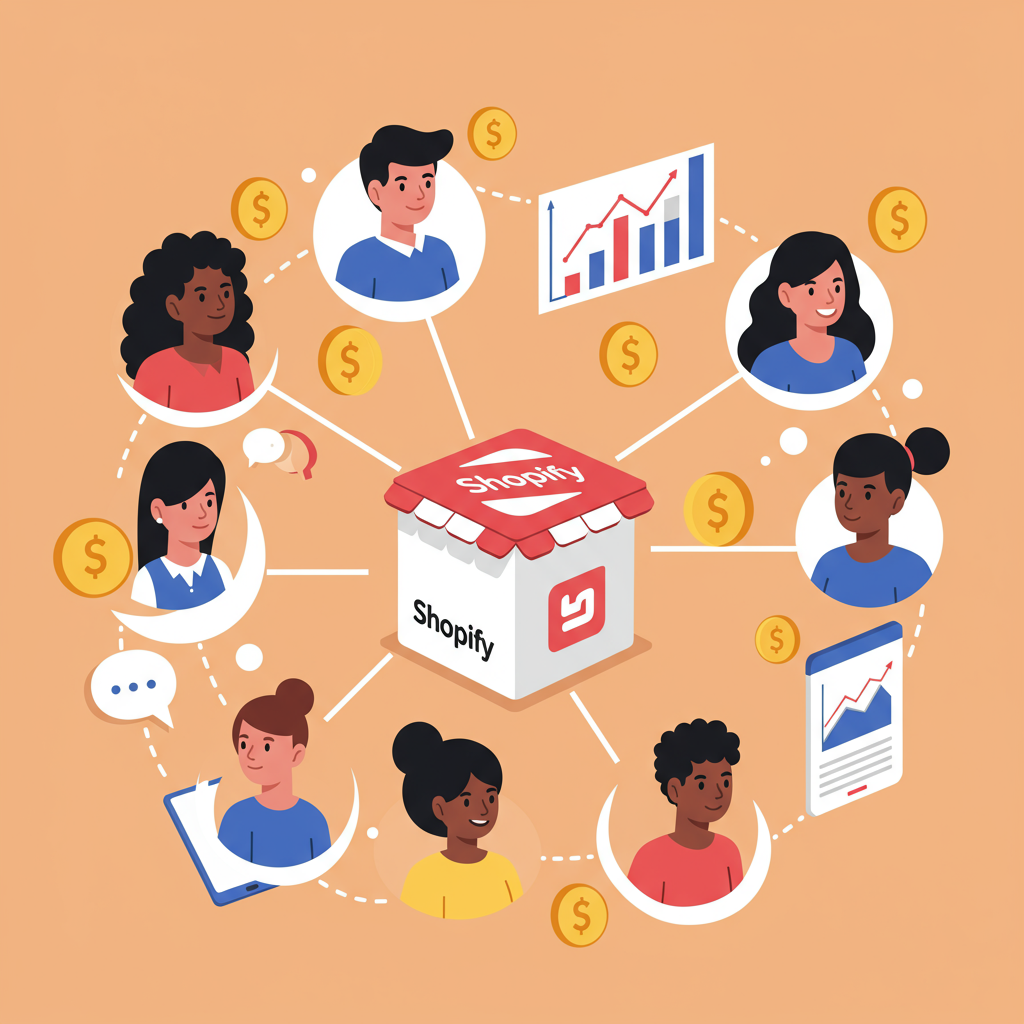Streamlining Your Path to Powerful Brand Collaborations
As a Shopify merchant, you’re constantly looking for innovative ways to grow your brand and reach new customers.
In today’s digital landscape, one of the most powerful strategies at your disposal is influencer marketing.
It’s about leveraging the reach and credibility of individuals who have built a loyal following online.
These influencers can introduce your products to an audience that trusts their recommendations, leading to significant sales and brand awareness.
However, I’ve found that managing influencer campaigns can be incredibly complex and time-consuming.
From identifying the right influencers to negotiating terms, tracking performance, and handling payments, it’s a lot for a busy merchant to juggle.
This is where Shopify influencer marketing platforms become indispensable tools for us.
These specialized platforms are designed to streamline every aspect of your influencer marketing efforts.
They act as a bridge, connecting your Shopify store with a vast network of potential collaborators.
My experience tells me that using such a platform can dramatically increase your efficiency and the effectiveness of your campaigns.
One of the primary benefits I’ve observed is the ability to discover relevant influencers quickly.
Instead of sifting through social media manually, these platforms offer sophisticated search filters based on audience demographics, niche, engagement rates, and more.
This ensures you’re partnering with influencers whose followers genuinely align with your target market.
Beyond discovery, these platforms provide robust campaign management features.
We can easily create campaign briefs, communicate with influencers, approve content, and manage timelines all within a single dashboard.
This centralized approach saves us countless hours and reduces the chances of miscommunication.
Tracking performance is another critical aspect that these platforms excel at.
They integrate directly with your Shopify store, allowing you to monitor sales, traffic, and conversions directly attributed to each influencer.
This data is invaluable for understanding your return on investment (ROI) and optimizing future campaigns.
Payment processing is also simplified. Many platforms handle the financial transactions, ensuring influencers are paid accurately and on time, which builds strong, lasting relationships.
When I evaluate a platform, I look for several key features.
First, strong influencer discovery tools are paramount. I need to be able to find the right fit, not just anyone.
Second, a comprehensive CRM (Customer Relationship Management) system for managing influencer relationships is crucial.
Third, robust campaign creation and management workflows are essential for smooth operations.
Fourth, detailed analytics and reporting capabilities are non-negotiable for measuring success.
Fifth, seamless integration with Shopify is a must, allowing for easy product seeding and sales tracking.
Finally, I consider the platform’s pricing model and whether it aligns with my budget and campaign volume.
There are generally a few types of platforms available to us.
Some are marketplaces, where influencers list their services and brands can browse and initiate contact.
Others are more like full-service agencies, offering hands-on management of your campaigns.
Then there are software-as-a-service (SaaS) platforms that provide the tools for you to manage everything yourself.
Choosing the right platform depends on your specific needs, budget, and the level of control you want over your campaigns.
For a small Shopify store, a more affordable, self-service platform might be ideal.
Larger brands might benefit from a platform with advanced features and dedicated support.
My advice is to start by defining your influencer marketing goals. Are you aiming for brand awareness, sales, or content creation?
Then, research platforms that specialize in those areas and offer the features you’ve identified as critical.
Many platforms offer free trials or demos, which I highly recommend utilizing to get a feel for their interface and functionality.
Once you’ve selected a platform, the process typically involves setting up your brand profile, defining your campaign objectives, and then beginning the influencer discovery phase.
Remember, building genuine relationships with influencers is key to long-term success.
Treat them as partners, not just advertisers. Provide clear briefs, offer competitive compensation, and be responsive to their questions.
Regularly review your campaign data to identify what’s working and what isn’t.
Don’t be afraid to iterate and refine your strategy based on the insights you gain.
Influencer marketing is an evolving field, and staying agile will keep your Shopify store ahead of the curve.
In conclusion, for any Shopify merchant serious about scaling their brand, investing in an influencer marketing platform is a strategic move.
It empowers us to execute sophisticated campaigns with efficiency, precision, and measurable results.
It transforms a daunting task into a manageable and highly effective growth engine for our businesses.
What do you think about this article? I’d love to hear your thoughts on how these platforms could benefit your Shopify store.






